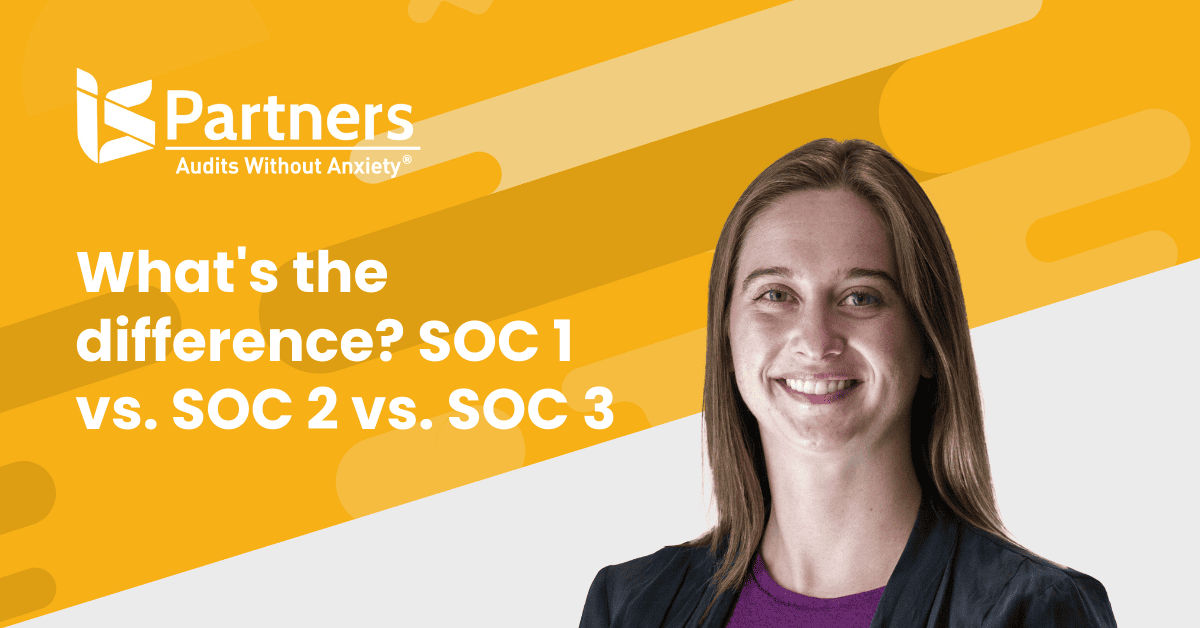Statement on Standards for Attestation Engagements (SSAE) No. 21 was just released in September 2020. The new standard provides guidance for Direct Examination Engagements. This enables practitioners, like I.S. Partners, LLC, to provide an examination opinion for organizations about the results of measurements or evaluations on any topic – both financial and non – in relation to criteria.
What Does Direct Examination Mean?
SSAE No. 21, published by the AICPA Auditing Standards Board, made an important change with this new standard. Direct examination engagements may be accepted even when your organization has not previously measured or evaluated the topic at hand or reported the results. Until now, standards like SSAE 18 only allowed assertion-based engagements. This means that they required an assertion by a responsible party.
Indications for how to utilize these special engagements are found in the newly added AT-C Section 206. Though direct examinations are distinctly different from assertion-based engagements, both are considered “reasonable assurance” and are included in the reported examination results. It’s also important to note that changing from an assertion-based engagement to a direct examination engagement is not viewed as a lower degree of reporting.
What Is the Purpose of a Direct Examination?
The goal with this addition to the standard was to make it possible to report on new and emerging non-financial subject matters. Practitioners can provide this new type of reporting service for all types of organizations to provide a reasonable form of third-party assurance on criteria of the client’s choosing.
What Is the Advantage of a Direct Examination?
A direct examination makes it possible for organizations to measure and evaluate new, complex subjects. They can do this even when they don’t have internal employees with the necessary expertise to perform such measurements and evaluations. The entity can avoid spending the resources needed to identify adequate criteria and measure or evaluate the subject matter.
This can represent a huge savings in terms of effort, time, and expense. Plus, organizations can report on things that are increasingly important in their industry, but which tend to be difficult to assess.
“While maintaining the ability to perform traditional ‘assertion-based’ examination engagements, this new engagement allows practitioners to use their highly valued skills and expertise to measure or evaluate different types of non-financial subject matters against criteria and report the results of their work directly to users, thereby furthering the public interest,” Tracy Harding, CPA and chair of the ASB.
What Is Required for Direct Examination?
SSAE No. 21 states that the responsible party is required to acknowledge responsibility for the underlying subject matter.
However, the responsible part, or client, is not required to:
- Measure or evaluate the underlying subject matter against the criteria; or
- Provide a written assertion to the practitioner.
How Should You Decide Which Type of Engagement to Accept?
When determining whether a direct examination or an assertion-based engagement is the better choice, practitioners are advised by the Auditing Standards Board to ask your organization the following questions.
- What is the intended purpose of the engagement?
- How will the report be used?
- Why does your organization want to get a direct examination report?
- Have you ever measured or evaluated the underlying subject matter in comparison to the criteria? If not, why?
- If you have measured or evaluated the underlying subject matter in comparison to the criteria, why don’t you want to provide an assertion?
What Other Changes Does SSAE No. 21 Introduce?
The biggest change is the addition of AT-C Section 206 which provides guidance regarding direct examinations. SSAE No. 21 also introduces some small changes to AT-C Section 105, Concepts Common to All Attestation Engagements. In this section, the new standard clarifies terminology and underlying definitions.
When Does SSAE No. 21 Go into Effect?
SSAE No. 21 will be effective for examination reports dated on or after June 15, 2022. Early implementation is also permitted.
Professional SSAE Reporting Assistance
Let us walk you through the process. I.S. Partners is dedicated to ensuring that our clients are always compliant with the latest requirements in their industry. If you would like guidance with the new or existing AICPA standards, contact our experienced team using the form below.




